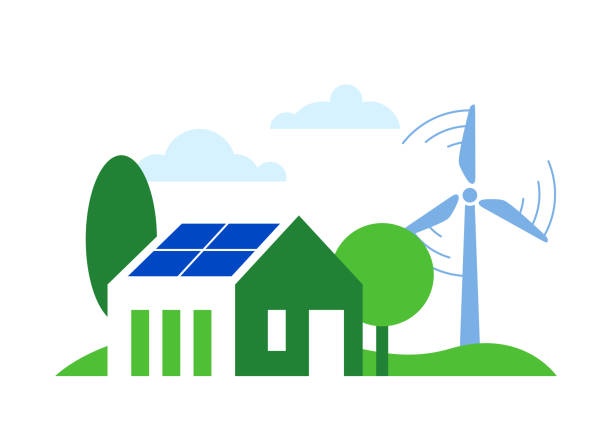
Solar power is becoming increasingly popular among homeowners looking for an environmentally-friendly, cost-effective option to conventional energy sources. Solar systems are a great way to generate electricity at home. They can reduce dependence on the power grid and lower energy bills. This blog will give you a complete overview of solar power, including its benefits, applications, and more.
Solar energy produced by solar systems at home is sustainable, renewable, does not produce greenhouse gases, and contributes to a low-carbon, sustainable energy system. A roof-mounted solar system can provide clean and renewable energy to various applications, including electric appliances, solar water heating, solar cookers, or charging batteries.
What is solar electricity?
Solar electricity is an alternative form of energy generated by converting solar energy into electrical energy. Solar panels are used to create solar energy. These panels consist of photovoltaic cells that convert sunlight into electricity. When sunlight strikes a PV cell, it creates a field of electricity that allows electrons to flow.
Solar systems typically include solar panels, a solar inverter, batteries, and an electric meter. Solar inverters are a vital component of solar systems that convert the DC electricity solar panels generate into AC electricity. The excess energy produced by solar panels can be stored in a battery for later, for example, at night or in periods of low sun. Solar power can also significantly reduce or even eliminate your monthly electricity bills, particularly in areas with plenty of sunlight.
Solar Electricity Applications
Solar energy is used for various purposes, including TVs and radios, kitchens, laundries, bathrooms, water pumps, etc. Solar power is used for transport, including trolleys, buses, and light rails.
Solar energy can also power various devices, including fans, air conditioners, and refrigerators. Even batteries, watches, and calculators can be charged outdoors. Solar sun energy is a revolutionary technology in the renewable energy world.
Solar Electricity: Advantages and disadvantages
Solar energy can be combined with other renewable energy sources, such as wind, to create a sustainable and reliable source of electricity. Solar thermal energy can be produced on a small scale for individual homes and businesses or on a larger scale for industrial applications or utilities. Other benefits include low maintenance and one-time installation fees. Solar systems can be easily installed on homes, buildings, or roofs, lasting over 25 years. This will reduce your electricity bills.
It’s not surprising that more and more homes are switching to a home solar system for their daily energy needs.
The sun is the major drawback of solar-generated electricity. Solar panels need direct sunlight to produce electricity. This means energy production is limited during cloudy, rainy, or winter days in areas with less sunlight.
Solar systems are also expensive to install and require a significant upfront investment. However, they pay for themselves over time. Solar panels are also environmentally hazardous since they can contain harmful materials that can pollute the air and water if disposed of improperly.
Conclusion
Solar electricity is an energy source that can benefit the individual and the environment. Understanding solar electricity basics, including how solar panels function and their various applications, will help us make an informed decision about the technology.
Solar energy has some drawbacks, but its benefits make it worth investing in over time. Solar power will play a vital role in the future of energy due to its increasing accessibility and technological advancements.
Genus Innovation’s high-performance inverter and battery will power your home today with sustainable energy. Visit our online store now to invest in a better future.”
